Was Ormandy the right conductor for mighty Rachmaninov?
mainJoe Horowitz has his doubts:
Ormandy’s recorded accompaniments to Rachmaninoff’s First, Second, and Fourth Piano Concertos are merely supportive: they give the soloist nothing to work with. (My pianist friend George Vatchnadze, describing the Rachmaninoff-Ormandy relationship, calls Ormandy a “puppy” and a “servant” — apt adjectives.) Stokowski’s accompaniment to the Second Concerto is unique. The signature lava flow of his magnificent Philadelphia strings is not only memorably ravishing; it is acutely calibrated in dialogue with the composer/pianist. It is not for nothing that Rachmaninoff called Stokowski’s Philadelphia Orchestra the greatest orchestra that had ever existed.
If you want to hear what I’m talking about, listen first to the passage from the First Concerto that Vladimir Horowitz once identified as the only instance of RCA adequately conveying Rachmaninoff’s art. This is the piano solo beginning at 12:52 here. And observe how the intrusion of Ormandy’s generic accompaniment cancels the abandon of Rachmaninoff’s playing, with its untethered rubatos and magically layered dynamics….
Read on here.
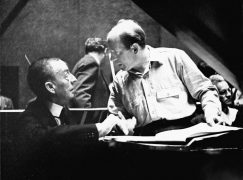

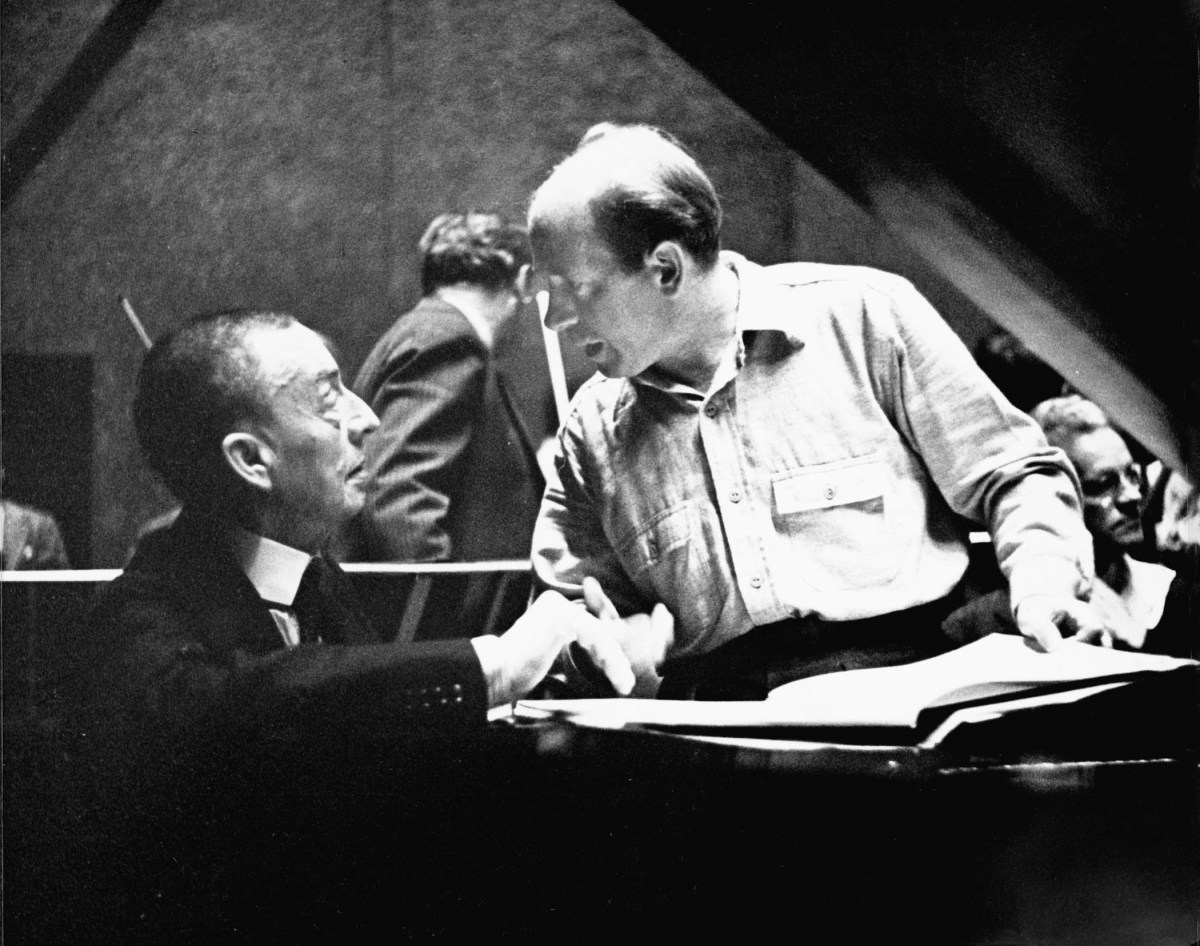
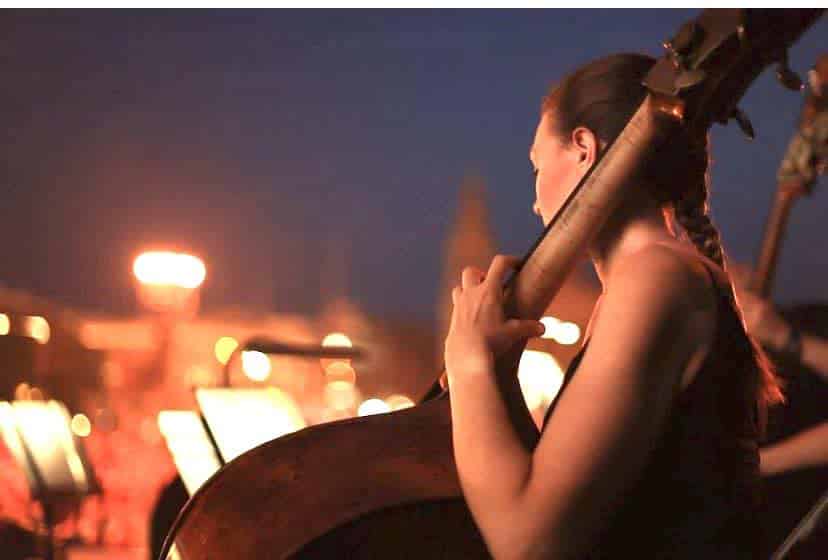
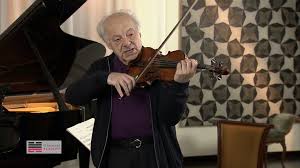

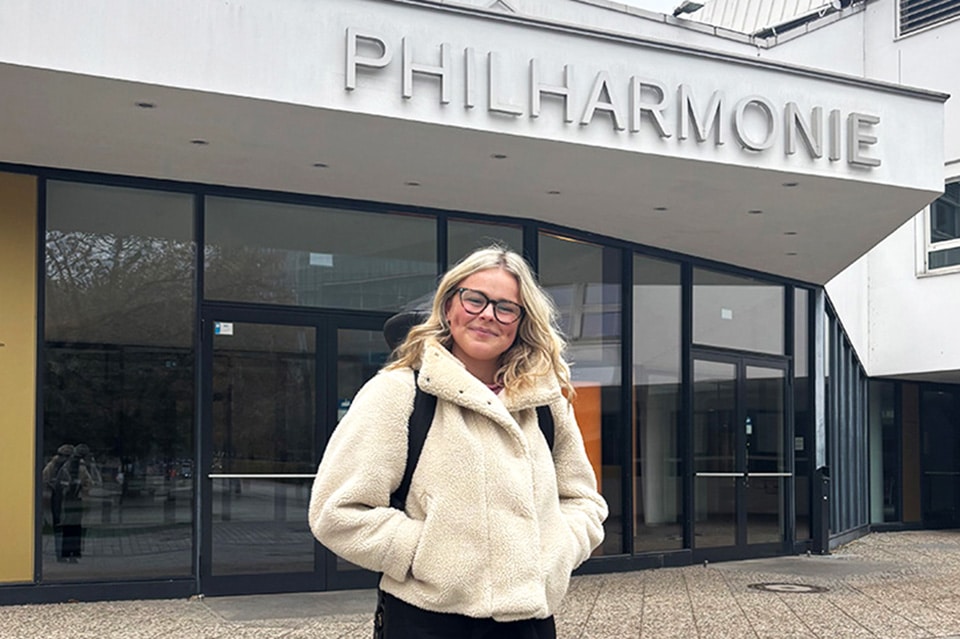
Ormandy was always a puzzle to these ears. Never understood the estimation lavished upon him. Generic about sums it up.
try Shostakovich symphonies 4 and ten. there is nothing generic about these masterly performances. this is similarly true for his rachmaninov symphonies. I could go on.
Those recordings were made in a rush, shortly bebore Rachmaninoff’s death in 1943, and are mostly “playing throughs”. Wanna be convinced by the sumptuous, energic, impassioned and calibrated sound of Ormandy – the Ormandy as guardian custodian and curator of the once mighty “Philly-sound”? Then give his recordings of the symphonies, and the 2nd in particular from 1959 a hearing.
As known to most, Stokie was originally an organist and Ormandy (or Blau Jenö) a violinist, trained by Hubay in Budapest. With such strong background and knowledge, he took extra care in refining the lush string-sound he inherited from a genius, and he kept it until his retirement in 1980.
Give it a chance. You will never hear that lush sound again, especially since Ormandy’s successor completely dismantled it beyond recognition. In fact, today, the once Golden “Philly” is hardly among the Big Five, wich is something unbearably regrettable.
Philly is in top form these days and is among the best orchestras out there. Still has a lot of character, but much more flexible than under Ormandy.
Ormandy’s late 70s live recording of the Isle of the Dead is an absolute gem. It is included in an anniversary CD set of the Philadelphia Orchestra.
I don’t know how much the famed Philadelphia sound changed under Muti, but have only very positive live experiences with this great orchestra from the 1980s, 1990s and 2000s.
Under Muti in two 1984 concerts at the Musikverein they sounded to me easily as impressive as the Vienna or Berlin Philhamonic orchestras on a good day in the same hall. Some lush and rather transparent sounds from Franck’s d-minor symphony still ring in my ears, if oral memory serves. Even the pre-concert tuning sounded lush!
Listening to the early 30s Stokowski/Philly recordings followed by the early Ormandy/Philly recordings, first on RCA and then Columbia, the Philadelphia string sound made a transformation of being a “bottom-up” (meaning the basses and ‘cellos were prominent) to a “top-down” (where the violins rule over everything else) sound.
With Stokowski, this was true with the woodwinds and brass sections, for example the trombones and tuba reinforced the trumpet section, rather than the trumpet section blasting everyone off the stage. Ormandy kept the string section as a whole front and center, but it lost its heft and depth that Stokowski fostered IMHO. I understand though, why Ormandy’s Philadelphia sound will have its advocates.
Stokowski (and Koussevitzky for that matter) understood that basses and ‘cellos will reinforce the upper instruments, making upper instruments sound “bigger”, and when they are completely in tune, just make the full orchestra sound rich, rather than “drowning out” the violins.
I believe it was the late Michael Steinberg who commented that Stokowski would “create” the Philadelphia sound before he would say “Good morning” at the first rehearsal, no matter where he went. There’s a grain of truth in that.
The recordings with Ormandy were made in 1939-41, not in a rush nor shortly before his death. He was diagnosed with various ailments in 1942, but not until early in 1943 was he found to have the Melanoma which quickly led to his death.
Ormandy died in 1985. Not my definition of quick…
I misused a pronoun there. Thanks for pointing it out. I was, of course, referring to Rachmaninoff’s death in reply to Novagerio.
I heard Ormandy conduct the accompaniment to the Rach Second concerto in Philadelphia and can attest to it being hardly “generic.” He was renowned as an exceptional accompanist, though perhaps soloists – who would designate his accompanying credentials – prefer “puppies.”???? Stoki also had a reputation as a very fine accompanist.
I should add that part of the reason for Ormandy’s very lush Rach is his tendency to double string lines in certain places where there was an opportunity to do so. There are plenty of Philadelphians on SD and I am sure they can elucidate on this……..Mr FitzPatrick can you help ??
I still hear something of that lush string sound when I hear them these days in the Kimmel Center or, better yet, Carnegie Hall. It is said that sound was cultivated to compensate for the extremely dry acoustic of the Academy of Music, where the orchestra rarely plays any more. While hardly a hall for the ages, the Kimmel Center has a more reasonable acoustic, and was substantially improved a few years ago when some relatively minor tinkering to the stage was done.
Agree that Carnegie is the best place to hear this orchestra and also agree that Kimmel is better than originally and of course much better than the Academy. The Philly striing sound has something also to do with the instruments (Italian mostly as I understand it) and the Curtis Institute supplying many players who were taught by orchestra members (rather like the VPO). This establishes tradition.
I have always found the Philly string sound a bit thinner than other orchestras actually. More of a Chablis than a Burgundy (Berlin). However, they know where to sit at Carnegie and they play on the floor not risers, and that makes a huge difference to bass resonance. Basses on risers = less bass sound in the hall.
The Academy of Music works well as an opera house, which is what it was built to be.
A Chablis is, strictly speaking, a Burgundy; albeit a white Burgundy from the north of the area rather than the heart of it. So let’s say: a Beaujolais rather than a Burgundy. Sorry for the pedantic wine lesson! ha ha
I was thinking “bright and clear” rather than “dark and full bodied”…………….I will try motoring analogies in future. Audi rather than Rolls Royce would do in this case.
I’d better throw out my RCA recording of Horowitz with the NYPhil under Ormandy in the Third. Pity, I liked it, It was the Jubilee performance. But after wat Vladimir said about RCA and what you guys said about Ormandy I don’t think I can listen to it again….
Ormandy was amazing. Watch his Rachmaninoff Symphony No 2 video with the Philadelphia Orchestra.
The majority of commentators on this site are basing their opinions from recordings. In order to truly appreciate the achievement of artists such as Ormandy, Heifetz, Horowitz and even Glenn Gould, it is imperative that the listener heard them live. Having experienced each of the aforementioned, as well as so many others, I can attest to an appreciation for the recorded product, knowing what they truly sounded like in the concert hall.
I watched Ormandy conduct the Chicago Symphony, in his only appearance with that orchestra. At the first rehearsal, within ten minutes and without saying a word, he had totally altered the sonic profile of that orchestra. Virtually every soloist I have known loved playing with him. He was the consummate partner, adjusting his infamous delayed downbeat whenever a concerto was involved. His attitudes toward sound and interpretation did not suit everyone, but you could never mistake his orchestra for any other.
Perhaps it is the climate of our times, but is almost impossible to imagine any music director leading between 100 and 180 performances per season with his or her own orchestra these days. After 44 seasons with Philadelphia, we must give the maestro his due. You do not accumulate that kind of tenure without reason.
I experienced the same phenomenon when Ormandy guest conducted the San Francisco Symphony after his retirement from Philadelphia. He carried that “Philadelphia sound” with him.
Mr. Slatkin, what’s your take on a conductor carrying their sound across orchestras? Apparently you and Ernest Robles have experienced it with Ormandy. I felt that way with Karajan and the Vienna Philharmonic. As a student I had the fortune of hearing this great orchestra under many famous conductors. Its distinctive sound could vary, sometimes significantly. And yet when I heard them play Bruckner’s 5th under Karajan, they had the Karajan sound we know from recordings, a sound I had also heard in the same hall with the Berlin Philharmonic.
In my experience, only a few have managed to transfer their preferred sonic profile to ensembles other than their own. Stokowski, certainly. But I invited Solti to St. Louis and , similar to Ormandy, he had my orchestra playing in a similar manner as his own to the north. As a young man, I remember Reiner transforming what was then a not so good band in Los Angeles.
None of this is meant to demean any of the outstanding conductors who have brought distinctive interpretations to the table. But not so many really focused on the actual sound of their orchestra as the above mentioned. Even Szell could not change the NY Phil on the occasions when I heard him there.
Leonard, my mother kept extolling the virtues of the Philadelphia Orchestra in the 1950’s as I was growing up. My reference point up to that time was the golden era of the LA Philharmonic in the relatively happy years where they were led by Eduard van Beinum. I really didn’t fully believe what she was saying until they appeared at Shrine Auditorium for a “Community Concert”. Ormandy came out and the richness of the opening of the Prelude to Die Meistersinger just blew me away. My jaw dropped 10 feet and I nodded my acknowledgement to her! (It was so vivid that I remember the rest of the entire program: Tchaikovsky 5th, Berg Lulu excerpts and Strauss Suite from Der Rosenkavalier.) I lost no opportunity to hear them every time they came to the Los Angeles area. No orchestra came close until I went down to San Diego to hear Solti conduct the Chicago Symphony in the Mozart Jupiter and the Mahler 5th in the 1970’s!
I have to say that at the two times I heard Ormandy conduct the LA Philharmonic (a concert at the Chandler Pavilion and a rehearsal at the Hollywood Bowl where he accompanied Van Cliburn in the Rachmaninoff 3rd) he imparted a lushness to their usual sound.
I know Solti visited a number of US orchestras after he retired from the CSO – among them San Francisco, Cleveland, NSO, but didn’t know he ever went to St. Louis.
As for conductors carrying their sounds, I remember hearing a story about Simon Rattle when he worked with the LA Phil. He heard them playing with Giulini, and then when he got up to conduct, he wanted them to make that same sound they made for him. He couldn’t get them to do it; Giulini brought it, but it didn’t stay behind.
According to the former Berlin Philharmonic percussionist Werner Thärichen, there was an occasion when the sound of the Berlin Philharmonic suddenly changed in mid-rehearsal under an unnamed conductor, when the musicians spotted Furtwängler in the auditorium.
https://www.youtube.com/watch?v=FKlYSG37nZM
You haven’t heard Bruckner’s Fifth until you’ve heard if from Jascha Horenstein, live at the Royal Albert Hall. Pretentious? Perhaps. But seriously, try it!
Thanks!
I, too, experienced the Ormandy sound phenomenon during a Tanglewood weekend with the BSO when he conducted Mathis der Mahler, Bartok Cto for Orch and a Tchaik symphony. Moreover, I think his cuts in Rach 2, agreed to by Rachmaninov, are judicious and preferable to my ears, eliminating Rach’s excess verbiage.
Though sounding differently from Ormandy’s era, the POA is still one of my two favorites along with the Concertgebouw.
I have nothing but admiration for Ormandy, although -as a European- I have missed the few opportunities there have been to hear him live. For me, his place in music is secured by the fact that he conducted the first ever recording (known to me, at any rate) of the Mahler Tenth in the completed version of Deryck Cooke. That came together for me (as a feat by Mr. Cooke, a performance by Ormandy and the orchestra AND a recording) like no other Mahler Tenth I have heard. I also like the Barshai, but Ormandy has first dibs in my book. That said I want to add that this site, for reasons I can’t fathom, is becoming very USA heavy. But hey! That’s how the cookie crumbles!
Further to that (sorry to be a pest!) I did have the privilege, when I lived in New York in the early 60’s, to hear Leopold Stokowsky and his then American Symphony Orchestra in Carnegie Hall. On the programme: Tchaikovsky’s Fourth Symphony and some stuff by Edgar Varese which didn’t, at the time, impress me a great deal. Stoky did, though, the Tchaikovbsky was volcanic. I was there with my then (now late) friend Julian Seaman, retired music critic of the Toledo (Ohio) Blade. We had great times together. (I always was a name-dropper!).
Hello, me again. I’m at an age when memories can be sketchy, with sudden flashes of perfect recollection. Re Stokowsky and his American Symphony, the aforesaid Seaman and I also went to New York’s Lewisohn Stadium, where we heard (Hilf, Samiel!)..yes, it must have been Tchaikovsky again: Francesca da Rimini. Music sleuths will bear me out, or correct me. I loved my time in NY: Colson in Gracie’s Mansion, Jake Javits campaigning in Central Park, Victor Borge at Radio City and the Verrazzano-Narrows Bridge getting painted for the first time. Life was great! Until they shot JFK, that put a bit of a damper on things. Sorry Norman, this has nothing to with music!
What a pointless statement. Critics are truly useless. Philadelphia Orchestra will never again have the great sound it did under Ormandy and Stokowski. Muti destroyed it. Sawallisch failed to restore it. And notice how few critics are actually musicians?
While Sawallisch didn’t restore it, he brought it back a couple steps in that direction after the Muti years. The difference was very noticeable fairly quickly after he took over. I started going to PO concerts in the middle of the Muti era, just after Ormandy retired from conducting altogether. I would say my favorite period in terms of how the Orchestra sounded was around the last 4-5 years at the Academy of Music. They had some trouble adjusting to the acoustics when they first moved to Verizon Hall. I thought Sawallisch held the brass back too much at that point. But in those last few years before they moved, they sounded glorious.
Hear this, naysayers:
I heard Ormandy conduct Philly three times in San Francisco.
All the performances over the three concerts – and the musical interpretations – were superb, but the ones that linger most in my memory are the Mahler 1st (without the “Blumine” movement, BTW), and the Prelude to the Afternoon of a Faun featuring the incredible first flutist Murray Panitz.
And re: Rachmaninoff – try the RCA recordings of the 3rd Concerto with Ashkenazy and the uncut 2nd Symphony (no repeats, though). Heaven!
I will go to my grave secure in my opinion that the sounds of Ormandy conducting the Philadelphia Orchestra are the most beautiful musical sounds I will have ever heard in my life.
I’m glad someone else feels the same way about the 1975 Ashkenazy/Ormandy Rachmaninoff 3rd Piano Concerto. It’s not one of RCA’s better recordings (the piano seems to emphasize the treble too much, to my ears) but the performance is a stunner. It was my favorite recording of #3 for many years, although I may be prejudiced from having been at one of the concert performances in February 1975. It’s been superseded by the Sokolov/Tortelier performance from a Proms concert, c. 1993, that is in circulation.
Ormandy programmed the Rachmaninoff #3 with Goldmark’s Rustic Wedding Symphony – a real treat. The first time the orchestra had performed it since 1912, if I recall the program notes correctly.
I also heard Horowitz and Ormandy perform the 3rd Concerto at the Academy in April 1978, a few months after the performance with the NY Philharmonic that was released by RCA. I think Ashkenazy’s performance was far superior.
I love to learn from people who have a finer musical/aural discernment and a longer history of “écoute” than mine, but I also watch from a certain distance the obvious exaggerations when it comes to the appreciation/valuation of musical interpretation. Once, when I was thirty, not sixty seven as now, a pianist friend berated me for not paying enough attention to the interpretation of a piece of classical music, instead concentrating on the beauty of the music itself. I didn’t know then but I do know now to what extent he was at the same time right and wrong
Many years ago, during the intermission of a BSO concert, another conductor (It might have been Barenboim, but I really am not sure) complained that every orchestra Eugene Ormandy conducted sounded “like a Eugene Ormandy orchestra.” he meant this pejoratively. I cannot attest to the accuracy of the statement but it would seem to me that, if correct, it is a complement. If a conductor can shape an orchestra’s sound like that, he must be doing SOMETHING right.
not sure if I can agree with Joe here. I’m amazed with Stokowski’s unique understanding of the Rachmaninov repertoire but you must hear the studio recordings with Ormandy done in the late 50s, with the perfectly measured 2nd symphony, the unsurpassed Vocalise, and the beautiful 3rd …. so Ormandy isn’t generic, not at all
Late to the discussion. Too young to have seen Ormandy conduct the Philly live in concert. On record, at least, the Philly under Ormandy is the most impressive orchestra I’ve ever heard. What security! What swagger! Listen to the 1960 CBS Tchaikovsky 4th or the overture to the Respighi-Rossini Magic Toyshop, also CBS. I could go. LOVE the vintage Philly!